
Kedareswar Temple :
Dedicated to Siva (who is also called the Kedareswar)
and Goddess Gouri, the temple is situated within the same premises next to the
Mukteswar Temple. The legend goes that king Lalatendu Kesari, after a tragic
episode relating to two lovers Kedar and Gouri, had built this temple in their
memory.

Svarnajalesvara temple :
The Svarnajalesvara temple, since restored is located
near the Kotitirtha tank and temple. It is a replica of the deul of the
Parasuramesvara temple , both architecturally and sculpturally.

The three ruined temples, commonly known as
Lakshmaneswar, Bharateswar andSatrughneswar , standing in a row opposite and
the much later Rameswar temple are generally regarded as the earliest temples, being
assigned to the closing of the sixth or beginning of the seventh century A.D.

Brahmesvara :
According to an inscription originally attached with
the temple (now missing), the temple was built to enshrine a linga called
Brahmesvara by Kolavati, the mother of Somavamsi king Uddyotakesari, in the
latter's eighteenth regnal year at a locality known as Siddhatirtha at Ekamra.
Thus the temple provides a datum-line in the chronology of Orissan architecture.

Megheswar :
According to an inscription the Meghesvara temple
along with the tank near it, came into existence at the instance of Svapnesvara,
brother-in-law of the Ganga king Rajaraja (circa A.D.1171-92) during the reign
of the latter's brother Anangabhima (circa A.D.1192-95).

Parasurameswar :
This is the best preserved specimen of the early
group of Orissan temples assignable to the 7th century A.D. It has a flat roofed
rectangular pillared hall (Jagamohana) attached to a "Triratha" Sanctum (Deul)
about 12.8 metres high, which carried a squat heavy-shouldered Sikhara. Its
carvings are known for their simple charm.

Rajarani :
Picturesquely set the Rajarani temple is a
combination of grace and elegance, famous alike for its sculptural
embellishments and the unusual formation of its tower. Facng east, the double
amlas, crowning some of the anga-sikharas are reminiscent of the Kandariya
Mahadeva temple of Khajuraho. Built in the 11th century the specialty of this
temple is that it has no presiding deity.

Siddeshwar :
Signaling the end of the first phase and anticipating
the second phase, the Mukteswar temple, facing west is an important landmark in
the progressive course of the architectural movement in Bhubaneswar. To the
north-west of the Mukteswar temple is the Siddhesvara temple. The temple is a
specimen of the khakhara Order, in which the emergence of the typical Orissan
form is almost complete.
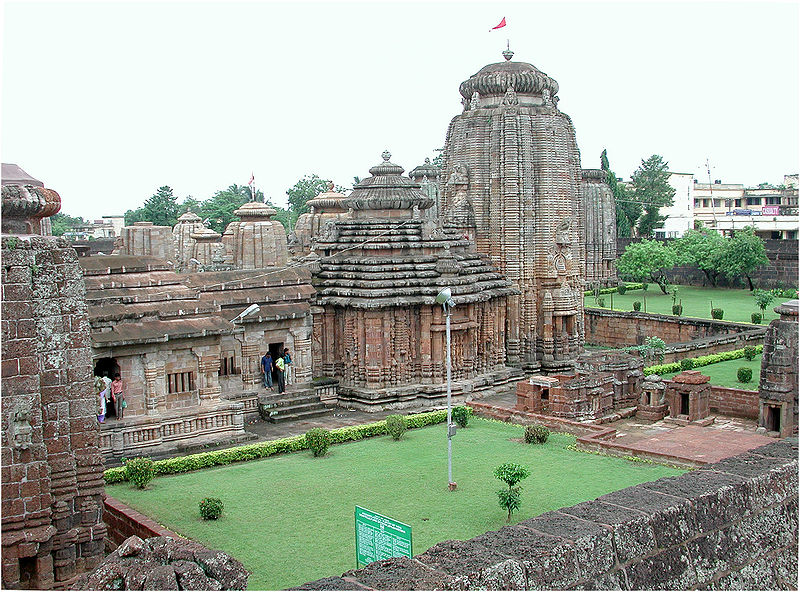
Lingaraj temple :
The product of the accumulated and crystallized
experience of several centuries, the Lingaraj temple, built in 617-657 A.D., is
the quintessence of Orissan architecture. In the elegance of its proportions and
the richness of its surface-treatment, it is one of the most finished and
refined manifestation of temple architecture in India.
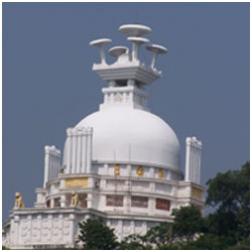
Dhauli :
The Peace Pagoda built by the Kalinga Nippon Budha Sangha in 1973 and known as Shanti Stupa commemorates the change of heart of Emperor Ashok and the journey of budhism to the nation.
There are two temples at Dhauli. One of Vairangeswar Mahadev and Dhabaleswar Mahadev.
The proclamations of Emperor Achok are recorded in prakrit language in bhramin script on the rock of Dhauli on the Southeast end.
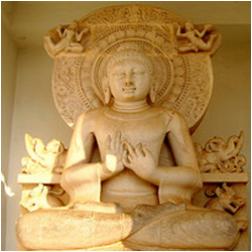
District Headquarter : Khordha
State Capital : Bhubaneswar
Nearest Railway Station : Bhubaneswar
Nearest Airport : Bhubaneswar
How to Reach :
The nearest airport is Biju Patnaik Airport, Bhuwaneswar, which is 6 km away.
Well connected by rail to all major tour destinations of the country. Bhubaneswar is on the National Highway linking Kolkata 480 km to Chennai 1225 km.
There are only a few buses specifically plying to the caves but there are plenty going by the near by road junction.
Otherwise you can also avail private cars and taxis from Bhuwaneswar station
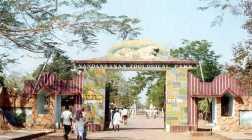
NandanKanan :
Nandan Kanan National Park is situated 20 Km from Bhubaneswar, capital city of Odisha, India. The name Nandan Kanan means Garden of Pleasure,
which gets justified when one enters the park. Along the banks of Lake Kanjia and amidst natural forest, is located.
The Zoo has earned International Reputation for breeding of white royal Bengal tiger in captivity and has two separate safaris for Lions and Tigers.
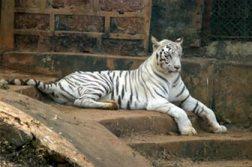
There is a Botanical Garden on the northern side of the zoological park overlooking the Kanjia Lake which is a resort of delight for the boating lover.
Elepahant Ride, toy train and ropeway amusements are also available in the Park
District Headquarter : Khordha
State Capital : Bhubaneswar
Nearest Railway Station : Bhubaneswar
Nearest Airport : Bhubaneswar
How to Reach :
The nearest airport is Biju Patnaik Airport, Bhuwaneswar, which is 6 km away.
Well connected by rail to all major tour destinations of the country. Bhubaneswar is on the National Highway linking Kolkata 480 km to Chennai 1225 km.
There are only a few buses specifically plying to the caves but there are plenty going by the near by road junction.
Otherwise you can also avail private cars and taxis from Bhuwaneswar station
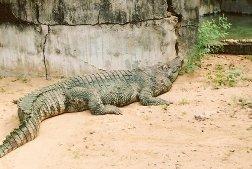
District Headquarter : Khordha
State Capital : Bhubaneswar
Nearest Railway Station : Barang
Nearest Airport : Bhubaneswar
How to Reach :
The nearest airport is the Biju Pattnaik Airport. Bhubaneswar about 20 km from Nandankanan. One can hire taxi directly from the Airport to reach the destination .
The nearest railway station to Nandankanan is Barang Station which 3 kms from Nandankannan but the express and superfast trains normally do n0t halt here.
It is advisable for the tourists to drop at Bhubaneswar Station it is near about 15kms from Nandankanan and hire Taxi, Auto rickshaw to reach Nandankanan.
The city Buses are also available near the Rly Station From which Travelers can get direct Bus to Nandankanan.
Bhubaneswar is well connected to other parts of the state. A number of City buses and town buses are available from Bhubaneswar to Nandankanan.
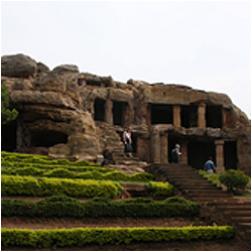
Khandagiri :
The Khandagiri and Udayagiri Craves relive the memories of Kalinga Empire under the Jain emperor Kharvela.
There are about 40 rock cut cave adoring the two hills separated by a road.
It is believed that the founder of Jain faith,
Mahavir had visited Udayagiri and khandagiri in the 6th Century B.C. Modern scholars are found in Rani and Hati Gumpha in the Udayagiti with description
of the culture of dance in Orissa as far before as the 2nd century B.C.
Modern scholars are of the opinion that the Udayagiri cave complex was also a
theatre complex. Emperor Kharvela was a staunch and a great patron of culture.
It is possible that he had created the caves for use of Jain ascetics as well as for cultural shows.
|



